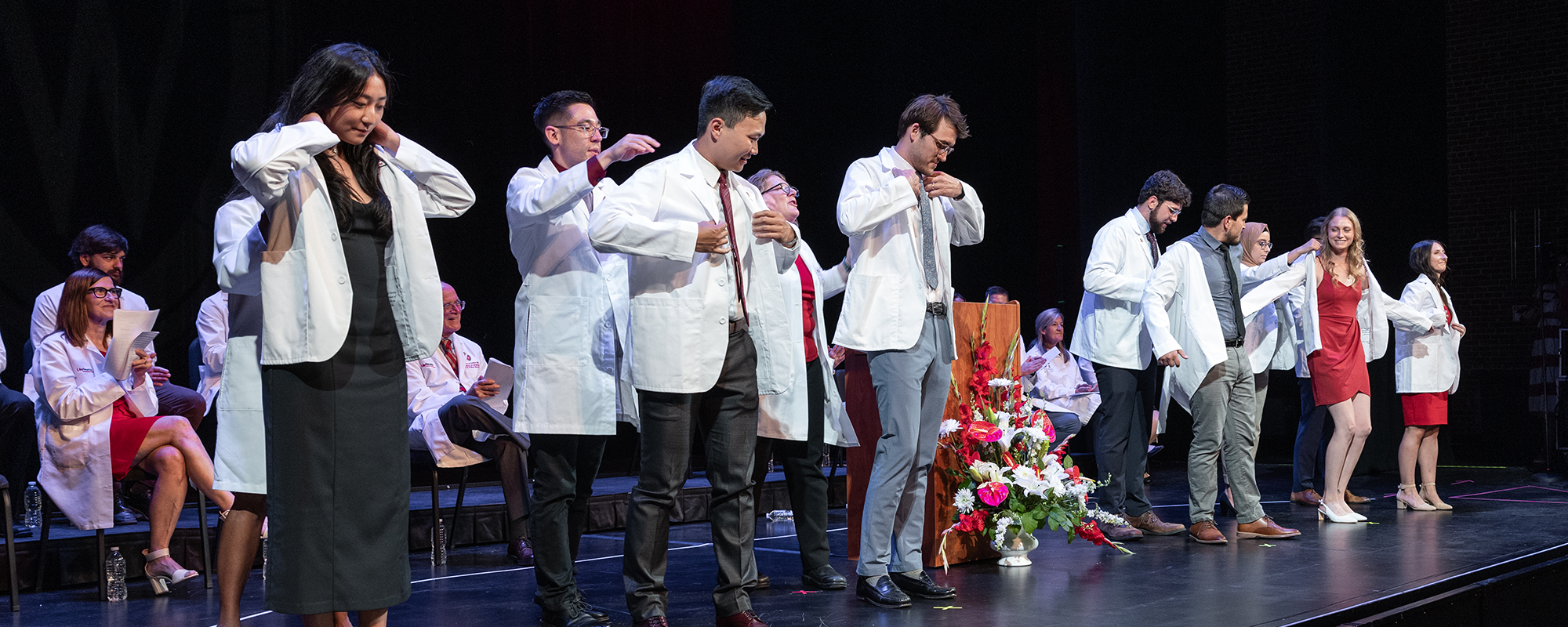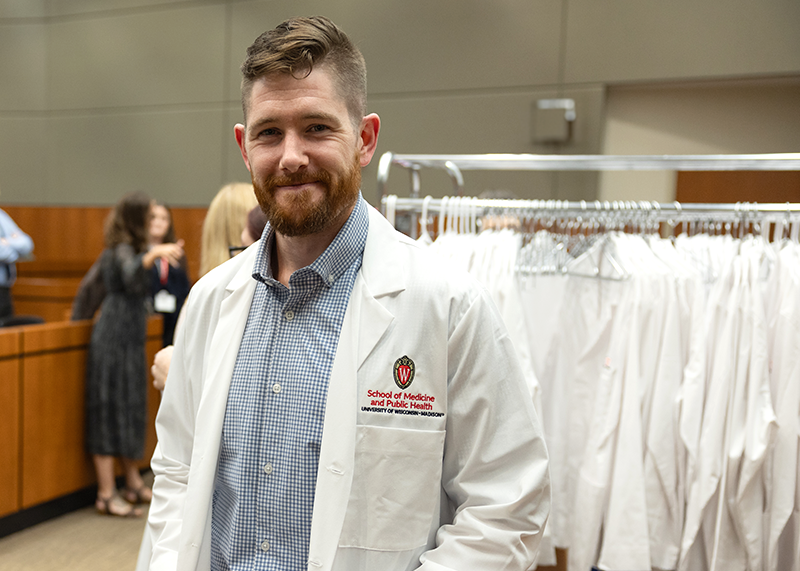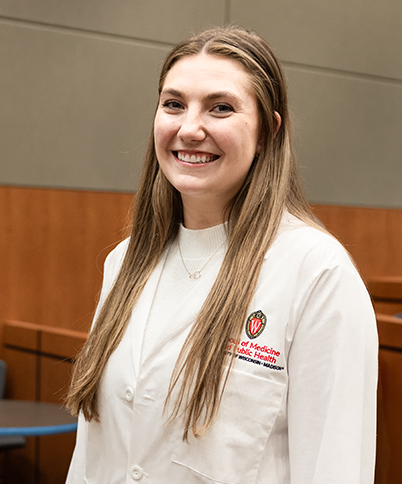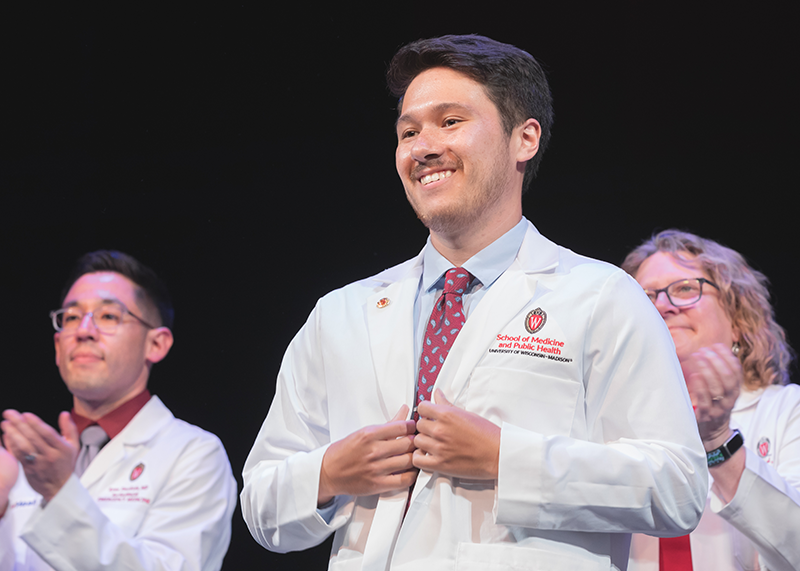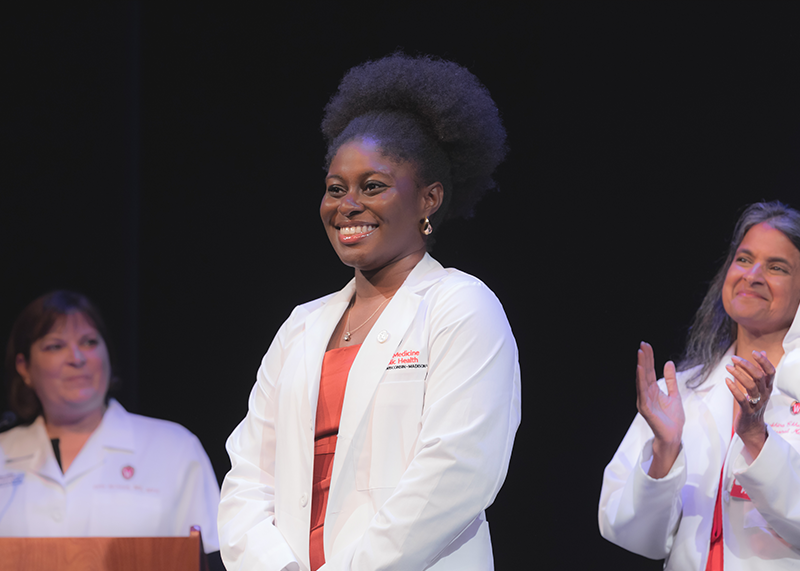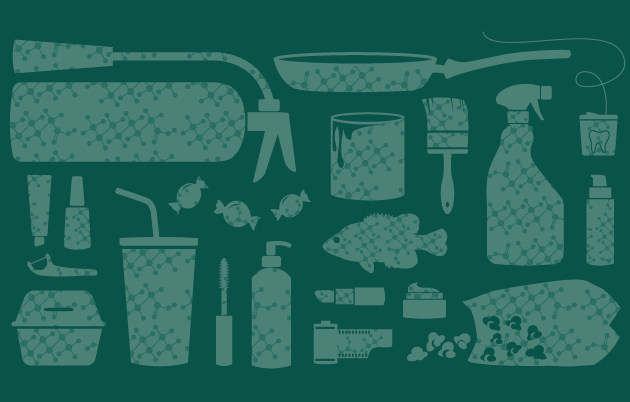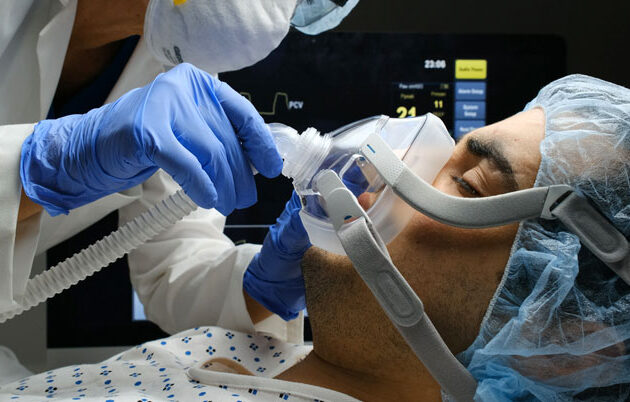First-year medical student Molly Pistono grew up in Sauk Prairie, Wisconsin and worked as a caregiver for a quadriplegic woman during her undergraduate years at UW–Madison.
“It was a very unique experience, very immersive,” Pistono recalled. “I spent 12-hour days with her, several times a week, helping her navigate her appointments and needs. It felt less like caregiving and more like entering her life. You can’t truly understand what other people go through unless you place yourself among people who are different than yourself.”
At the same time, Pistono, who majored in neurobiology, served as team manager for the UW Badger Women’s Volleyball team from 2018-2022, which taught her “how I want to live my life and work within a team.”
Joining the UW Health Trauma and Life Support Center for a year as a nursing assistant solidified Pistono’s decision to become a doctor.
“There was the team aspect,” she said. “There was my scientific curiosity. There was my desire to serve others. I found that what I was seeking in my career was not so much a job, as a vocation.”
For Kaniala Aragon, the realization came when he was sidelined for months with an injury, leading him to reflect on his life. Aragon came to Wisconsin as a young boy from Hawaii, where his family was living in the poverty-afflicted Manoa Valley east of Honolulu. Aragon’s family moved into his grandparents’ basement in Sun Prairie, then eventually to Columbus. While he was in high school, Aragon’s mother was diagnosed with pancreatic cancer. Later, his father moved back to Hawaii and experienced homelessness.
“Seeing the care that my mother received at University Hospital and all the teams that were involved with her treatment, inspired me to pursue health care,” he said. “But I also saw how challenging it was for a homeless man to access the health care system.”
